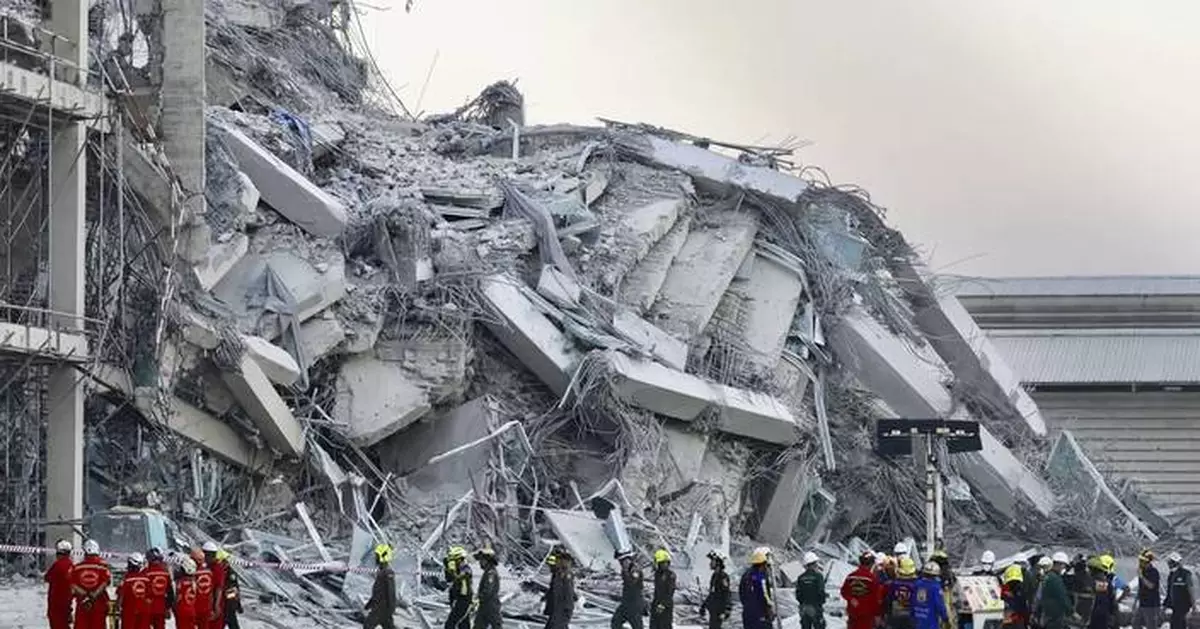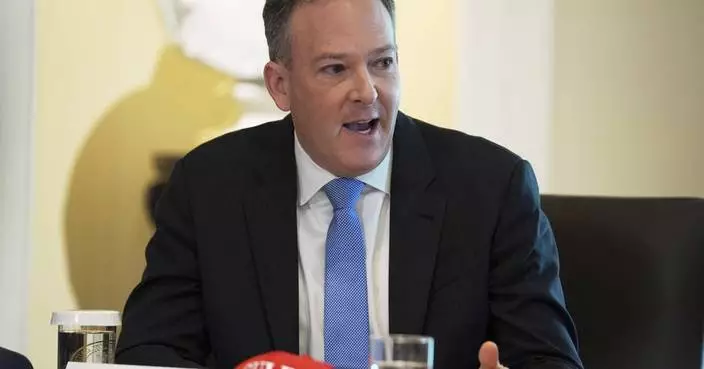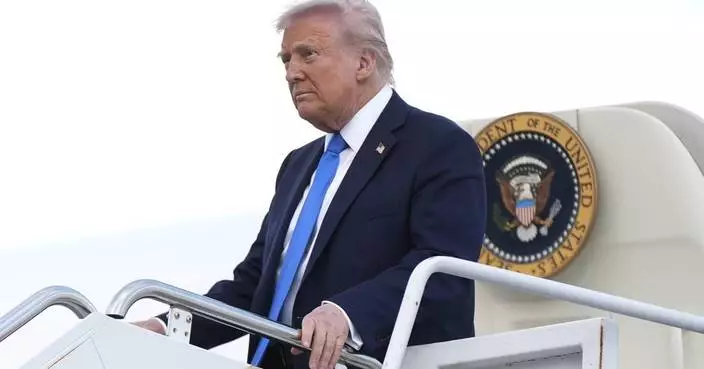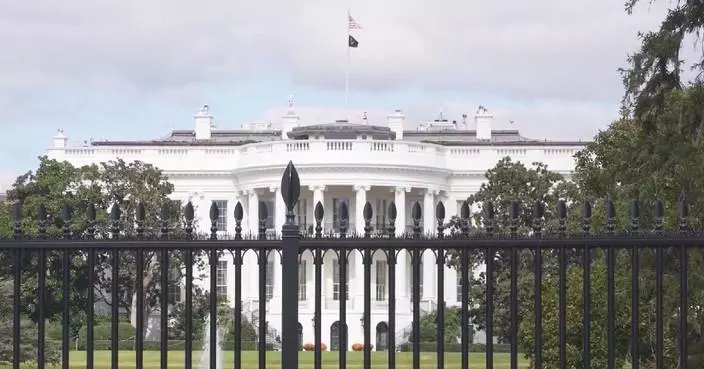BANGKOK (AP) — A Thai-Chinese company denied Monday allegations its steel rods did not pass safety standard tests after nationwide criticism prompted an investigation into the collapse of a high-rise building under construction after an earthquake last month in Bangkok.
Authorities are probing Xin Ke Yuan Steel and another Chinese contractor involved in the construction to find out why the building crumbled following a quake centered in Myanmar, more than 800 miles (1,200 kilometers) away. It was the only building that completely collapsed that day.
The 7.7 magnitude quake on March 28 killed more than 3,700 in Myanmar, while in Thailand, 47 were killed, mostly at the collapse site, and 47 others went missing.
The collapse sparked questions about the enforcement of construction safety and the state-run Chinese contractor, China Railway No. 10 Engineering Group, leading to the arrest Saturday of its Chinese executive in Thailand, identified as Zhang, on suspicion of operating the business through the use of nominees.
Foreigners can operate a business in Thailand, but it must be a joint venture with a Thai partner, and they cannot own more than 49% to protect local competitiveness.
Three Thai shareholders of the company are also wanted on suspicion of being the nominees, said officials of the Department of Special Investigation, Thailand’s equivalent of the FBI. They also said they were looking into the quality of the construction material and whether the company illegally fixed its bidding.
The company posted a video online last year advertising the building, meant to be a new office of the State Audit Office, with plenty of drone footage and boasting about the quality of the design, construction and management of the project.
Last week, a Thai engineer filed a police complaint saying that his name and signature were forged as a project controller in one of the construction plans. He denied any involvement in the project.
Xin Ke Yuan Steel, also partly owned by Chinese nationals, came under scrutiny over the quality of the steel rods they provided for the buildings. Its operating license is currently suspended following a fatal fire accident in December at its factory in Rayong province.
Industry Minister Akanat Promphan said two types of steel rods found at the collapse site did not pass safety standards and that Xin Ke Yuan supplied both. He raided the company’s factory on April 11 for evidence, saying that samples of the steel products confiscated by authorities following its December suspension have already failed two tests.
The company’s legal team disputed Monday the test results in a press conference, stressing that all of their products had passed safety tests and that they were being treated unfairly by authorities. They, however, declined to comment when asked specifically about the test results of the company's steel rods found at the collapse site.
Earlier this month, the Revenue Department filed a complaint accusing Xin Ke Yuan of issuing over 7,000 false tax invoices. The company’s lawyers on Monday denied any wrongdoing.
The search for the missing workers is still ongoing, Thai authorities say.
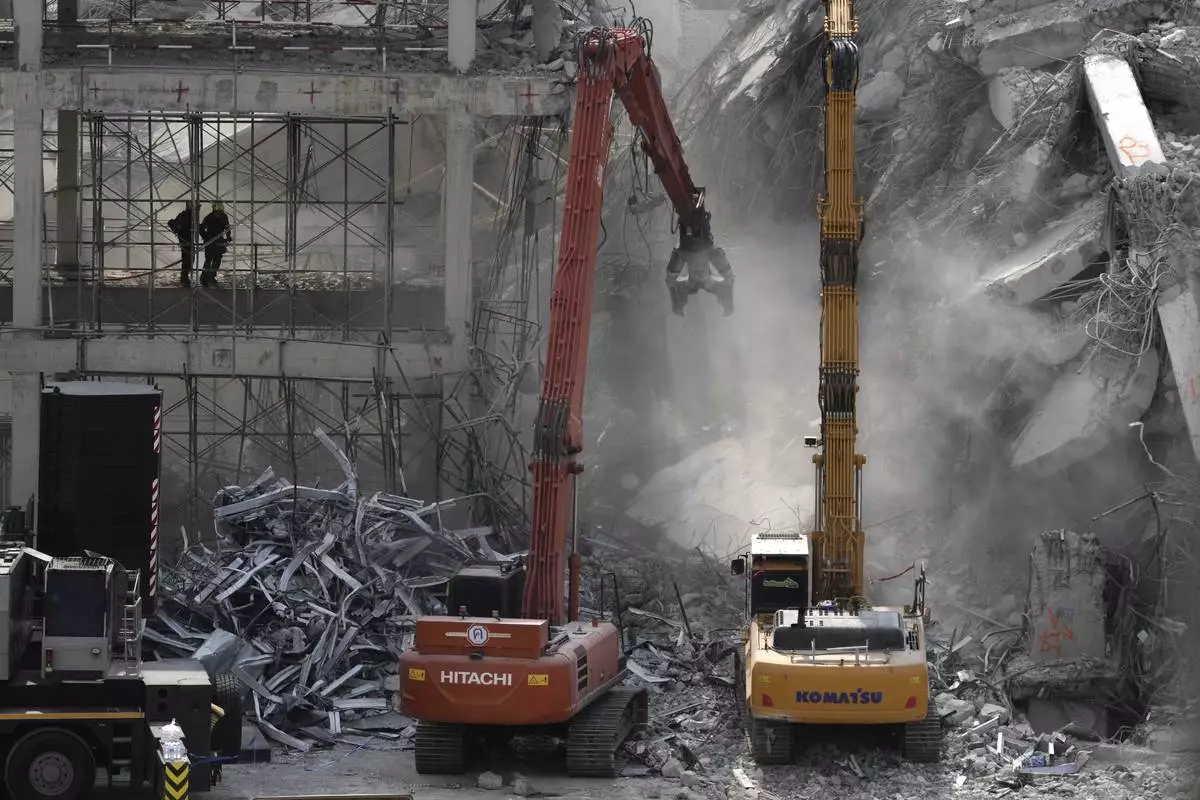
FILE - Soldiers from fire services spray water to settle the dust as heavy machineries are deployed to clear the rubble from an under construction high-rise building that collapsed after Friday's earthquake in Bangkok, Thailand, on April 2, 2025. (AP Photo/Manish Swarup, File)

FILE - Heavy machineries are deployed to clear the rubble from an under construction high-rise building that collapsed after Friday's earthquake in Bangkok, Thailand, on April 2, 2025. (AP Photo/Manish Swarup, File)

FILE - Naruemol Thonglek, right, with her daughter, waits for news of her partner, who is missing after the collapse of an under-construction high-rise building after an earthquake in Bangkok, Thailand, Monday, March, 31, 2025. (AP Photo/Manish Swarup, File)
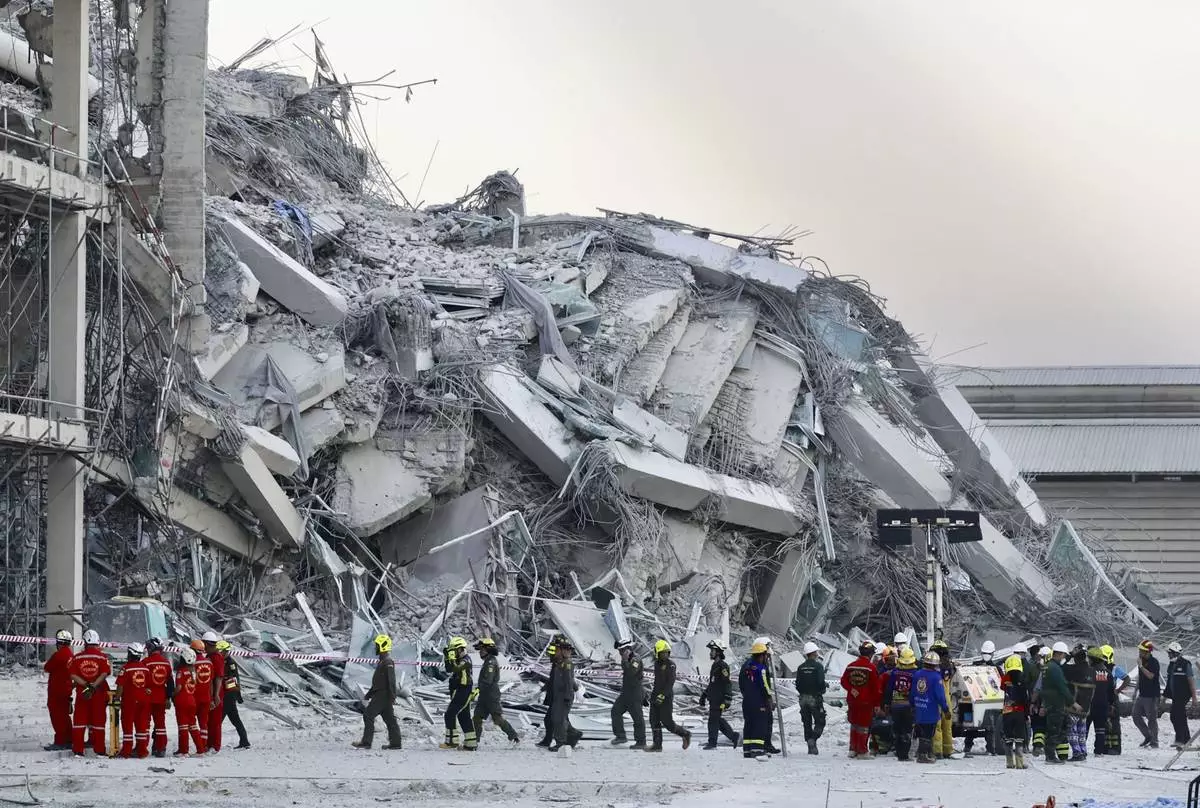
FILE - Rescuers work at the site a high-rise building under construction that collapsed after an earthquake, in Bangkok, Thailand, on March 28, 2025. (AP Photo/Wason Wanichakorn, File)
WASHINGTON (AP) — The White House released President Donald Trump's 2026 budget proposal Friday, hoping to slash, if not zero out, spending on many government programs. It seeks a sweeping restructuring of the nation’s domestic priorities, reflective of the president’s first 100 days in office and sudden firing of federal workers.
Trump's plan aims for steep cuts to child care, disease research, renewable energy and peacekeeping abroad, many already underway through Elon Musk’s Department of Government Efficiency, all while pumping up billions for the administration's mass deportation agenda.
The budget drafters echo Trump’s promises to end “woke programs,” including preschool grants to states with diversity programs. And they reflect his vow to stop the “weaponization of government” by slashing the Internal Revenue Service, even as critics accuse him of using the levers of power to punish people and institutions he disfavors
Overall, it’s a sizable reduction in domestic accounts — some $163 billion, or 22.6% below current year spending, the White House said.
At the same time, the White House said it is relying on Congress to unleash $375 billion in new money for for the Homeland Security and Defense departments as part of Trump’s “big, beautiful bill” of tax cuts and spending reductions. His goal is to repel when he calls a “foreign invasion," though migrant arrivals to the U.S. are at all-time lows.
House Speaker Mike Johnson welcomed the proposal as “a bold blueprint that reflects the values of hardworking Americans and the commitment to American strength and prosperity.”
Budgets do not become law, but serve as a touchstone for the coming fiscal year debates. Often considered a statement of values, this first budget since Trump's return to the White House carries the added weight of defining the Republican president's second-term pursuits, alongside his party in Congress.
It comes as Trump has unilaterally imposed what could be hundreds of billions of dollars in tax increases in the form of tariffs, setting off a trade war that has consumers, CEOs and foreign leaders worried about a possible economic downturn.
Democrats assailed the budget as a devastating foreshadowing of Trump's vision for the country.
“President Trump has made his priorities clear as day: he wants to outright defund programs that help working Americans," said Sen. Patty Murray of Washington, the top Democrat on the Appropriations Committee. This, she said, “while he shovels massive tax breaks at billionaires like himself and raises taxes on middle-class Americans with his reckless tariffs.”
The White House Office of Management and Budget, headed by Russell Vought, a chief architect of Project 2025 from the conservative Heritage Foundation, provided contours of a so-called skinny version of topline numbers only.
It covers only the federal government's discretionary spending, now about $1.83 trillion a year on defense and nondefense accounts. Trump's team drops that spending by $163 billion, to $1.69 trillion, a portion of the nation's nearly $7 trillion budget that includes far more programs and services.
Federal budgets have been climbing steadily, as have annual deficits that are fast approaching $2 trillion with annual interest payments on the debt almost $1 trillion. That’s thanks mostly to the spike in emergency COVID-19 pandemic spending, changes in the tax code that reduced revenues and the climbing costs of Medicare, Medicaid and other programs, largely to cover health needs as people age. The nation’s debt load, at $36 trillion, is ballooning.
“We need a budget that tells the full story, and it should control spending, reduce borrowing, bring deficits down,” said Maya MacGuineas, president of the Committee for a Responsible Federal Budget, a fiscal watchdog group.
Among some of the White House's proposed highlights:
The State Department and international programs would lose 84% of their money and receive $9.6 billion, reflecting deep cuts already underway, including to the U.S. Agency for International Development.
The Health and Human Services Department would be cut by $33.3 billion and the Education Department’s spending would be reduced by $12 billion. The Centers for Disease Control and Prevention and the National Institutes of Health would all face steep reductions.
The Defense Department would get an additional $113.3 billion and Homeland Security would receive $42.3 billion more. Much of that is contingent on Congress approving Trump's big bill. That approach drew criticism from leading defense hawks, among them the former GOP Leader, Sen. Mitch McConnell of Kentucky.
McConnell called the proposed boost in defense money in the president's budget a “gimmick."
“America cannot expect our allies to heed calls for greater annual defense spending if we are unwilling to lead by example," McConnell said in a blistering statement. "Fortunately, Presidential budget requests are just that: requests. Congress will soon have an opportunity to ensure that American power – and the credibility of our commitments – are appropriately resourced."
It's Congress, under its constitutional powers, that decides the spending plans, approves the bills that authorize federal programs and funds them through the appropriations process. Often, that system breaks down, forcing lawmakers to pass stopgap spending bills to keep the government funded and avoid federal shutdowns.
Congress is already deep into the slog of drafting of Trump’s big bill of tax breaks, spending cuts and bolstered funds for the administration’s mass deportation effort — a package that, unlike the budget plan, would carry the force of law.
Vought is also expected on Capitol Hill in the weeks ahead as the Trump administration presses its case.
Among the more skilled conservative budget hands in Washington, Vought has charted a career toward this moment. He served during the first Trump administration in the same role and, for Project 2025, wrote an extensive chapter about the remaking of the federal government.
Vought has separately been preparing a $9 billion package that would gut current 2025 funding for the U.S. Agency for International Development and the Corporation for Public Broadcasting, which involves the Public Broadcasting Service and National Public Radio. Trump signed an executive order late Thursday that instructs the Corporation for Public Broadcasting and federal agencies to cease funding for PBS and NPR.
Vought has said that a package of so-called budget rescissions would be a first of potentially more, as the Trump administration tests the appetite in Congress for lawmakers to go on record and vote to roll back the money.
This story has been corrected to reflect that the administration is proposing to cut the Health and Human Services budget by $33.3 billion, not $33.3 trillion.
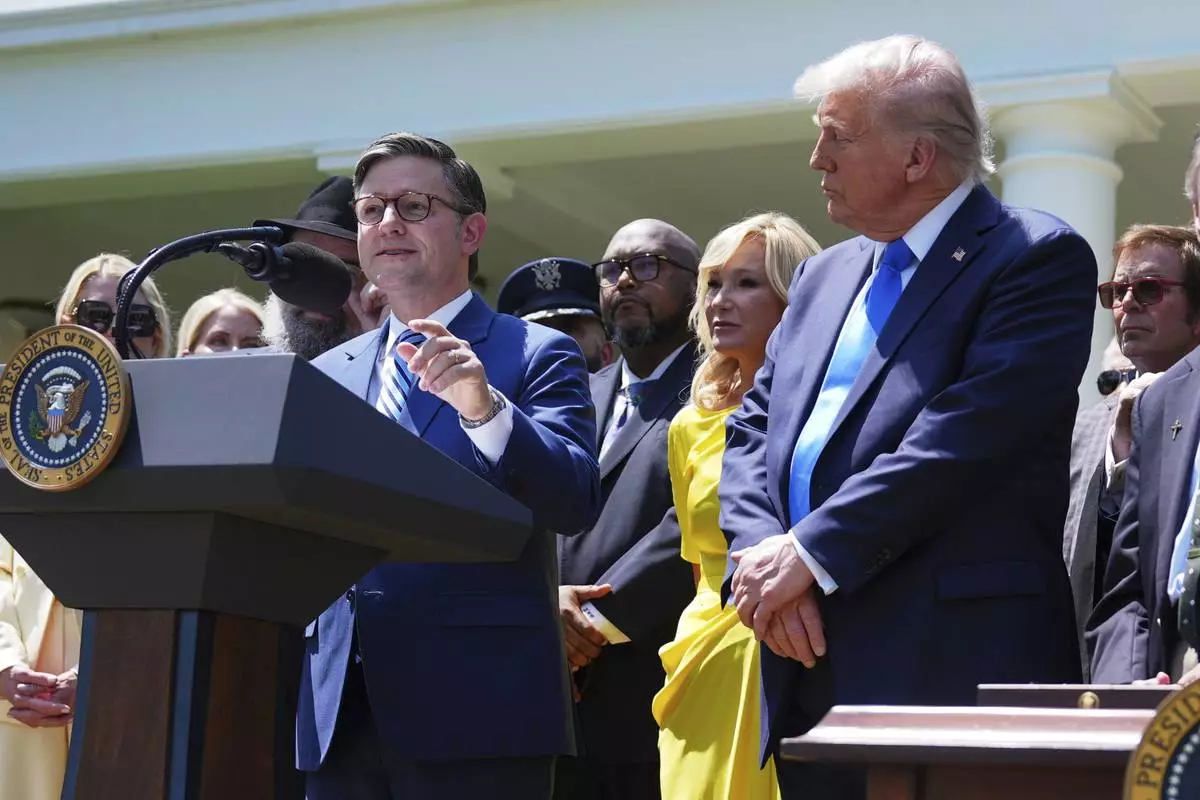
House Speaker Mike Johnson, R-La., speaks as President Donald Trump, right, listens during a National Day of Prayer event in the Rose Garden of the White House, Thursday, May 1, 2025, in Washington. (AP Photo/Evan Vucci)
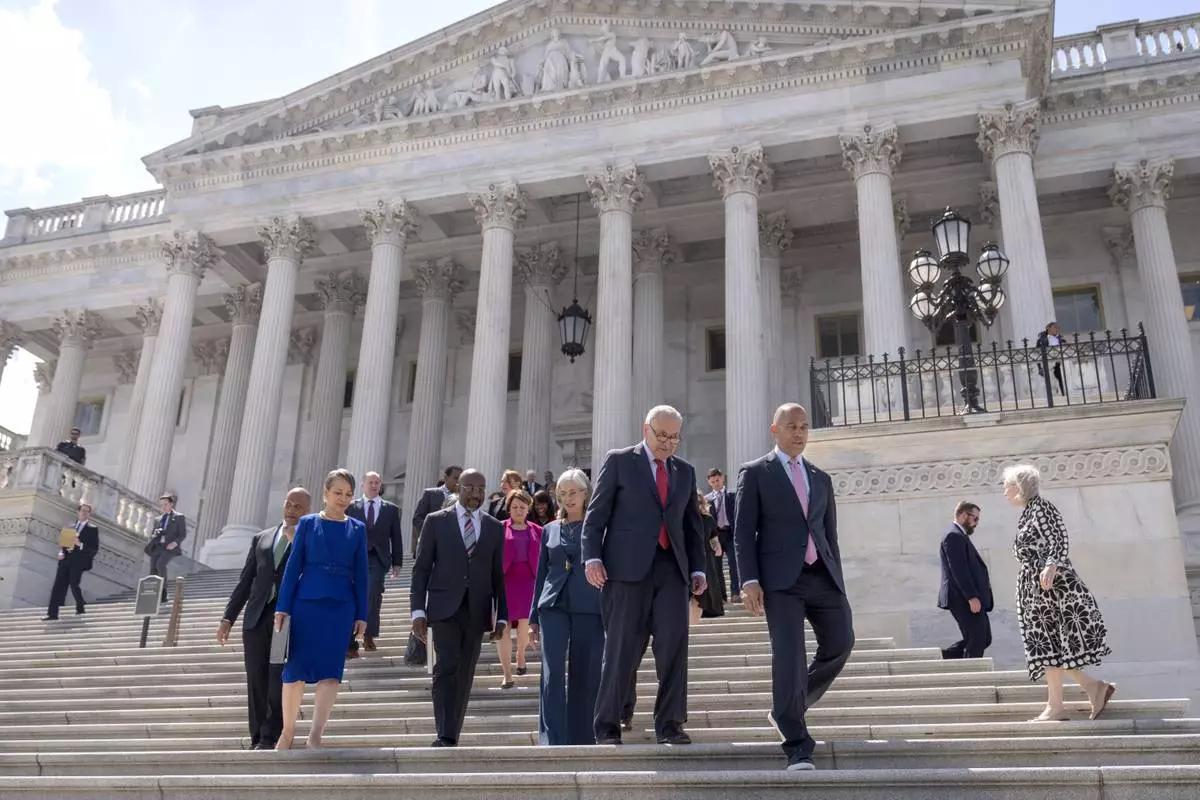
Senate Minority Leader Chuck Schumer, of N.Y., second from right, and House Minority Leader Hakeem Jeffries, of N.Y., right, arrive with other House and Senate Democrats for an event to mark 100 days of President Donald Trump's term on the steps of the Senate on Capitol Hill, Wednesday, April 30, 2025, in Washington. (AP Photo/Mark Schiefelbein)
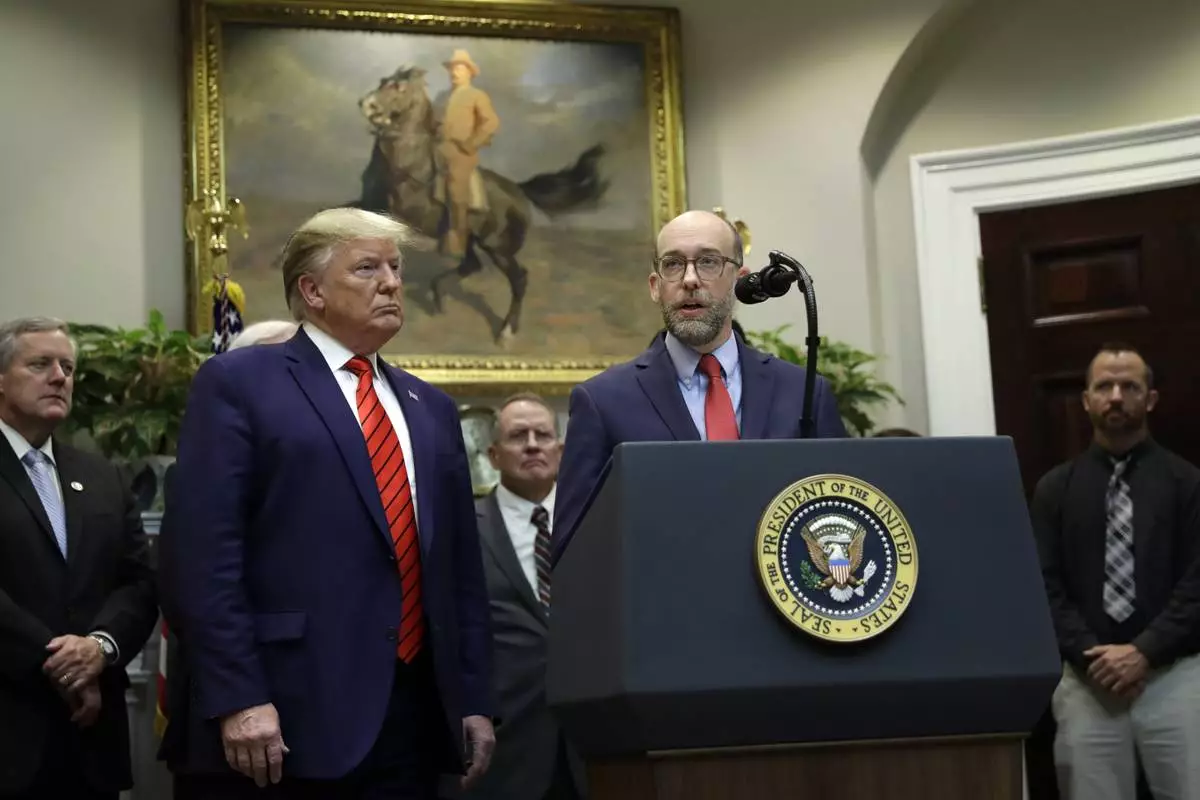
FILE - President Donald Trump listens as acting director of the Office of Management and Budget Russ Vought speaks during an event on "transparency in Federal guidance and enforcement" in the Roosevelt Room of the White House, Oct. 9, 2019, in Washington. (AP Photo/Evan Vucci, File)






